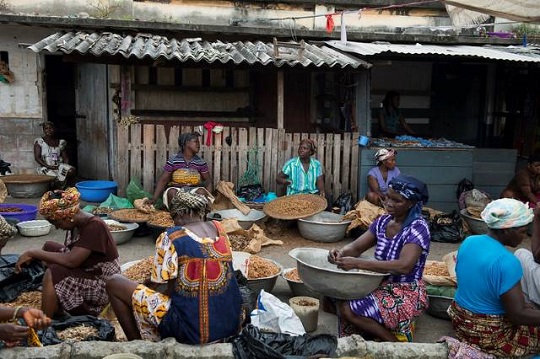The World Bank has released its latest Ghana Economic Update report, revealing that approximately 850,000 Ghanaians fell into poverty in 2022 due to the surge in prices of goods and services.
The report, titled “Price Surge: Unravelling Inflation's Toll on Poverty and Food Security,” was launched in Accra on Wednesday.
The inflationary pressures have led to a decline in living standards and exacerbated poverty and food insecurity among households in Ghana. In response to these findings, the World Bank has recommended various policy actions to address the situation.
The Bank suggested that policymakers focus on restoring economic stability, easing the plight of farmers, including tackling the high cost of fertilizer and expanding social intervention programs to protect vulnerable populations.
In the medium-to-long term, the report emphasized the importance of investing in agriculture research and technology transfers to increase domestic production, reduce production costs, and improve the quality and safety of food.
Mr. Paul Corral, a Senior Economist with the World Bank, explained that the Bank used monetary indicators to assess household income and expenditure, and inflation was a significant factor in pushing many people into poverty.
Speaking at the report's launch, Mr. Kwabena Gyan Kwakye, a World Bank Economist, highlighted the adverse impact of 2022's macroeconomic shocks, especially inflation, on the poor.
He expressed concerns about the next two years, noting that the recovery from the economic crisis would be challenging for Ghana's poverty reduction efforts.
The report also stressed the importance of expanding and increasing transfers of the Livelihood Empowerment Against Poverty (LEAP) program to enhance support for the most vulnerable.
Additionally, support for farmers to adjust to global demand and market opportunities was deemed crucial to address food security concerns, given that many poor households are involved in farming.
The 2017 Ghana Living Standards Survey showed that 45.6% of the population was multidimensionally poor, while 23.4% experienced consumption expenditure poverty.
These groups faced challenges related to basic necessities like electricity, water, housing, sanitation, education, nutrition, and health insurance.
In light of Ghana's 54.1% inflation rate in December 2022, the World Bank's report underscored the need to prioritize connecting road networks to farmers, address transportation and storage bottlenecks, and attract more youth into agriculture.
Looking ahead, the World Bank indicated that Ghana's economy could recover to its potential growth by 2025, depending on the implementation of structural reforms, economic growth promotion, and building economic resilience through the country's financial bailout program with the International Monetary Fund (IMF).
Mr. Pierre Frank Laporte, World Bank Country Director for Ghana, Liberia, and Sierra Leone, expressed optimism that growth would start to recover by 2025 as the effects of fiscal consolidation fade and structural reforms take effect.





